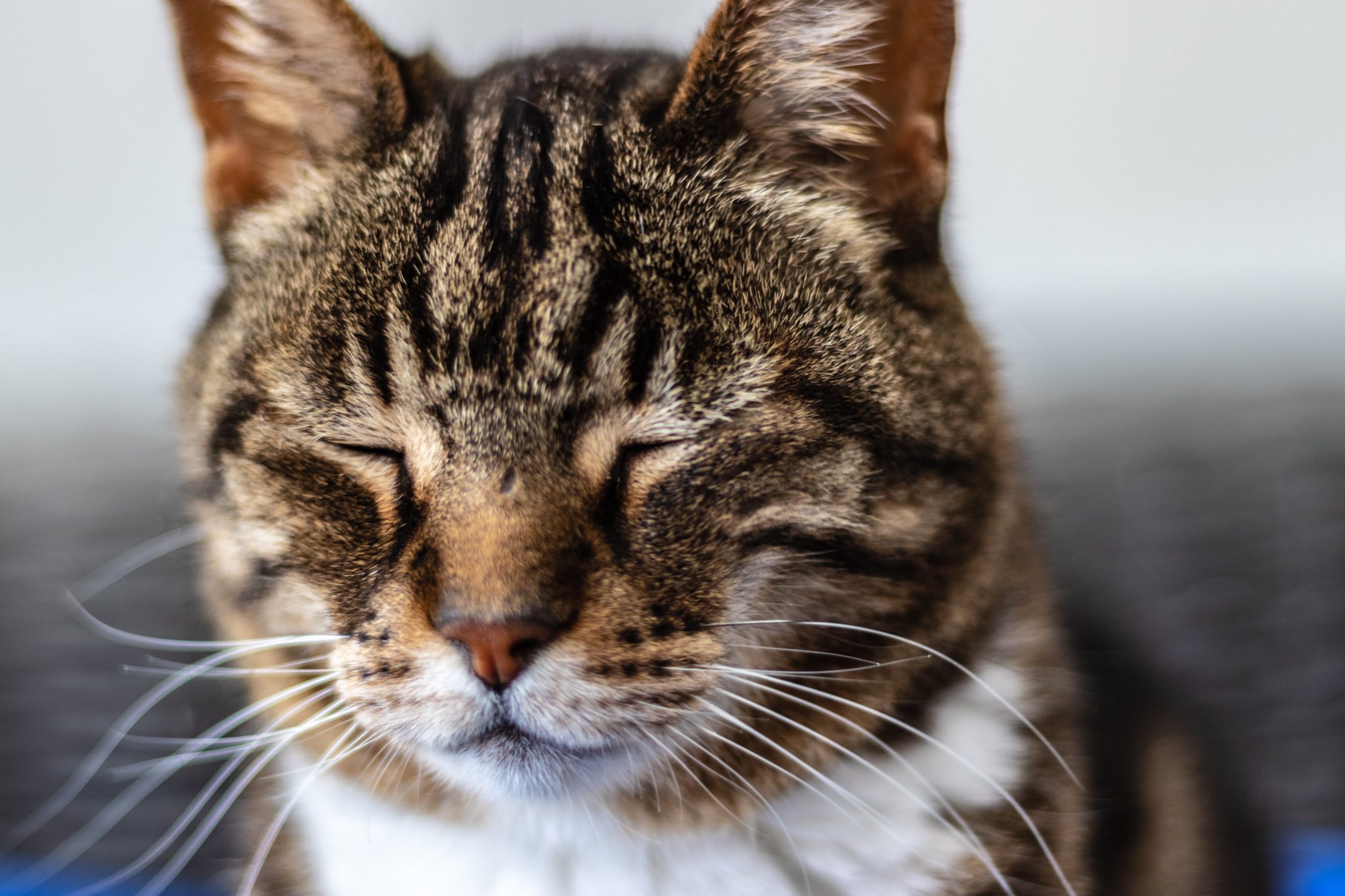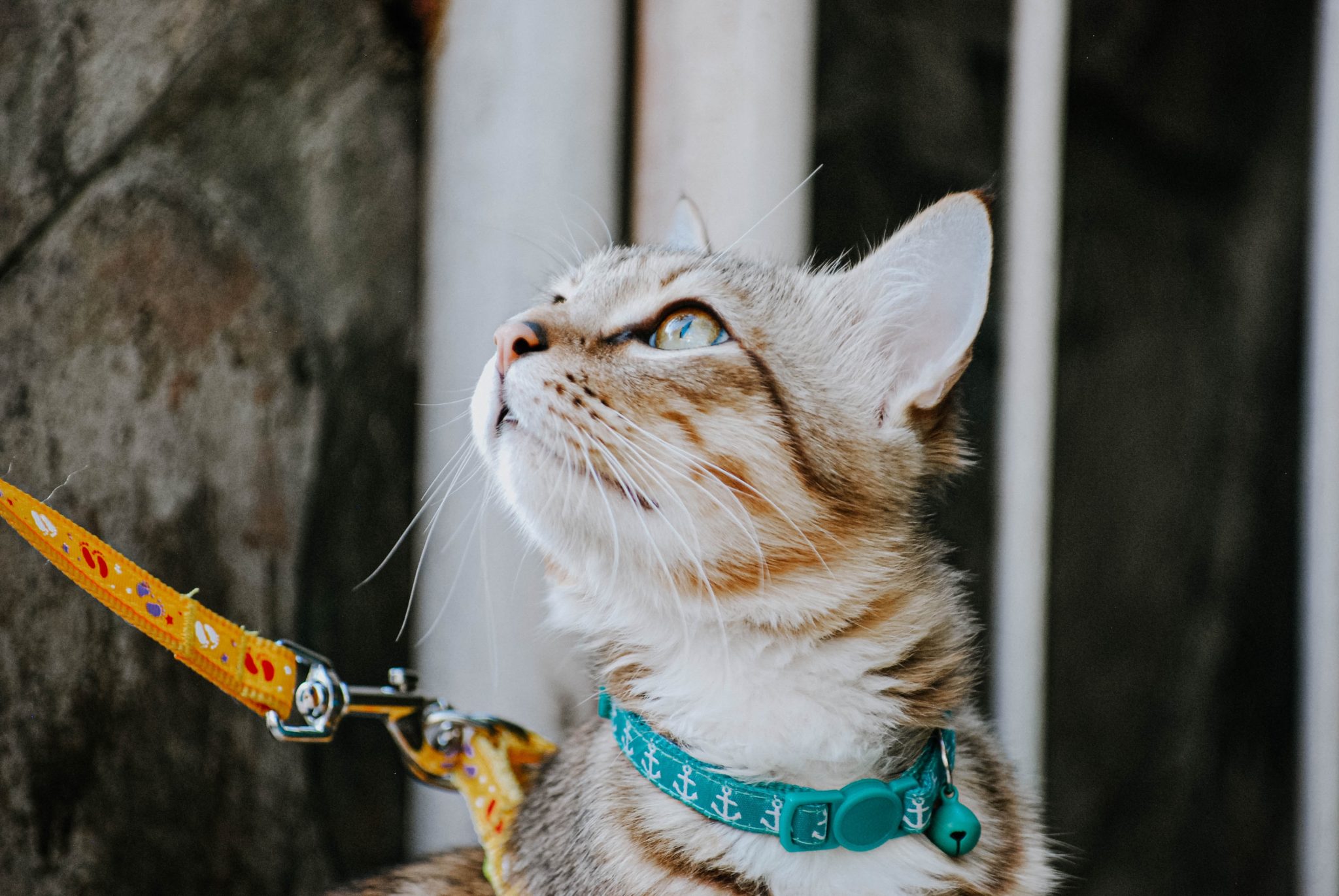Blind Cat Care: How to Provide the Best for your Pet
The post Blind Cat Care: How to Provide the Best for your Pet appeared first on The Catnip Times.
A variety of health issues causes blindness in cats. It can be the result of issues while the kitten is still in the womb or could be caused by illness or injury during the cat’s lifetime. And, just like humans, cats over a certain age (about 6 years old) often experience a decrease in the sharpness of their vision. Despite some obstacles, blind cats can still have extremely fulfilling and happy lives, and caring for a blind cat can be very rewarding. Here are some facts you need to know about blind cats and how you can help your blind cat live its best life.
How Blind Cats Navigate Their World
Blind cats rely heavily on their other senses to get around in the world. This means that a blind cat’s sense of touch, smell, and hearing play an even larger role than they do in a sighted cat. Because blind cats rely on touch, you may notice that their whiskers may become more worn over time than a sighted cat’s would. Cats use their whiskers to feel their way through the world and particularly in navigating tight spaces. They also may avoid jumping onto things because they can’t sense the height.
Blind cats that were once sighted can also rely on their memory to judge distances and heights, so when they become very familiar with a space they may feel confident enough to jump on objects or surfaces. Because a blind cat’s memory-mapping of a space is so crucial to successful navigation, be sure that you avoid rearranging furniture. Also, make sure the ground is free of any obstructions or obstacles that are not usually there. Blind cats are very adaptable, so much so, that sometimes the owner does not even realize their cat is blind until they move the furniture and the cat bumps into it!

Sudden Blindness
If due to injury or illness your cat suddenly becomes blind, treat them with extra patience as they adjust to their new life. It could take several weeks for a cat to adjust to suddenly losing sight as the cat will at first be very disoriented. Cats affected by gradual blindness often have a much easier time adjusting, but that does not mean your newly blind cat will not eventually return to a new normal. Engage them with their other senses–touch, smell, hearing–through toys that cater to those senses. Also, talk to your cat frequently and especially when you enter or exit a room so as not to startle them. You and your blind cat will soon establish a routine.
Bringing a Blind Cat Home
If you are thinking about adopting a blind cat, the process of introducing them to your home is very similar to bringing home a sighted cat. First, you will want to keep them in a single room for a couple of days so they can adjust to the new environment. Gradually, introduce them to the rest of your home room by room while giving them plenty of time to explore and memorize the space. Because of their blindness, this process will likely be a longer than with a sighted cat.
Make sure to supervise your cat in the introductory phases to make sure they cannot hurt themselves on furniture or other objects. If you have a multi-story home, block off staircases at first so your cat won’t accidentally trip and fall. You may need to make slight adjustments as you learn from your blind cat such as padding furniture or moving obstacles. When they are exploring a new space make sure you encourage your blind cat with lots of love and treats so they feel safe and welcome.

Daily Care for a Blind Cat: Toys and Enrichment
In many ways, caring for a blind cat is very similar to caring for a sighted one. Blind cats love toys that utilize their other senses–like toys that crinkle, make noise, or have bells; or toys with catnip. Blind cats will also love when you talk to them so they know if you are in the room or not. Before petting or picking up a blind cat, make sure you vocalize your presence in a soothing manner so they do not become startled. This is especially important when waking up a blind cat because when startled they could possibly bite or scratch. Either talk to your blind cat until she or he wakes up or make noise about the room so the cat knows you’re there. Because blind cats have a heightened sense of hearing, remember not to shout or make loud noises that could upset your kitty.
Daily Care for a Blind Cat: Environment
Because blind cats rely so heavily on their memory of a space, it is very important to remain consistent. Keep their food and water dishes in the same place. And do the same for her litter box so your blind cat always knows where it is. If these objects are suddenly relocated this may cause confusion and distress for your cat. The same goes for the furniture in your house. If you must move your furniture, for example, to clean or vacuum the floor, make sure you put it back in the same location so your cat knows where it is.
Along the same lines, try not to pick up your blind cat and set them on an elevated surface, they may become disoriented and fall off the surface thinking they are on the ground. Just like sighted cats, blind cats still love to climb and play. Use care in selecting items like a cat tree with ramps or walkways. Choose designs that are lower to the floor so that if your cat were to miss a step, they won’t fall far and injure themselves. Choose a tree that is 30 inches and under.

What About Blind Cats and the Outdoors?
It is strongly advised to not let your blind cat outside under any circumstance. Since they cannot see predators or other dangers, they are especially vulnerable. If you must take them outside, be sure to always use a harness and leash. Make sure you are paying extra close attention to your cat because you will be acting as their eyes. It’s a good idea to put a collar on your blind cat and mark it as “Blind” so if your cat escapes or runs away, s/he will have a better chance of being found and reunited with you. And be sure to microchip your blind kitty as well. Microchipping is a simple procedure that will help ensure your cat will be returned to you should they escape. Finally, you can purchase a GPS cat collar or pendant so you could more easily find them if they get outside.
Caring for a blind cat can be an immensely rewarding experience. Expect to pay extra attention and care to your blind cat to ensure s/he acclimates to your home. It’s your job to be the “eyes” for your cat and remove any obstacles, barriers, and dangers. Put yourself in their situation and use common sense and a lot of love in providing a safe, secure and enriching environment for your special needs kitty. If you want more resources on blind cat care, you can check out this FAQ sheet by Best Friends.
Madeleine Brown is a student at the University of Chicago studying English literature. When she’s not studying, her passions are reading, baking, and spoiling her two kitties, Harper and Mr. Bingley.
The post Blind Cat Care: How to Provide the Best for your Pet appeared first on The Catnip Times.




Post a Comment